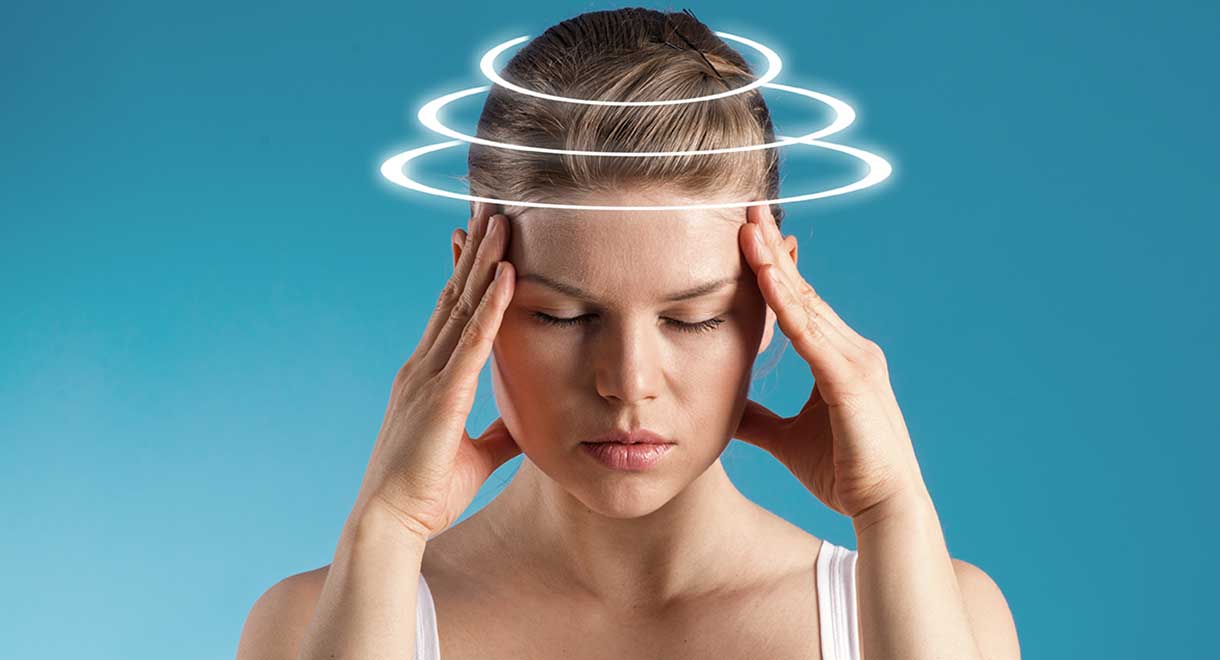Vertigo
Vertigo is a sensation where suddenly the person’s surroundings start to spin around – it is akin to being on a very fast merry-go-round at a carnival with the world spinning around you. Vertigo may be associated with nausea, sometimes vomiting, and an inability to stand up straight or walk without falling over. Basically, vertigo causes you to lose your balance in space. Vertigo can occur by itself or be part of Meniere’s Syndrome when it will be accompanied by tinnitus and hearing loss. Vertigo can occur as one isolated attack or can recur episodically as vertigo attacks. Some people with vertigo attacks, feel dizzy or slightly off balance in between their attacks.

Causes of vertigo
Vertigo is caused by a disorder of the inner ear, specifically the part of the inner ear called the vestibule, which sends messages to the brain about a person’s position in space. The vestibule is the organ of equilibrium and registers the body’s movements, thus ensuring that we can keep our balance. The vestibule consists of three ring-shaped passages, oriented in three different planes (semi-circular canals). All three passages are filled with fluid that moves in accordance with the body’s movements. In addition to the fluid, these passages also contain thousands of hair fibers which react to the movement of the fluid sending little impulses to the brain. The brain then decodes these impulses, which are used to help the body keep its balance. Crystals of calcium carbonate are found embedded in parts of the vestibule and are vital for its function of balance, stability and spatial orientation. If there is not enough calcium in the right places in the vestibule, vertigo may occur. Vitamin K supplements help to put this calcium in the right places.
Tests for vertigo
The patient should see an ear nose and throat specialist to determine if there is any sinister cause for the vertigo, such as a tumor on the cranial nerves, brain stem or in the inner ear. Alternatively, the patient can visit the balance and vertigo center at a major hospital. The Epley maneuver can be taught to the patient and their partner, as it can stop a vertigo attack. For more information, see Epley maneuver.
Deficiencies of vitamin D, as well as vitamin K, can make vertigo much worse and can produce a general feeling of dizziness and light-headedness. Bacterial infections of the inner ear and/or middle ear can cause vertigo. Viral infections of the 8th cranial nerve which supplies the inner ear may cause vertigo, and the most common virus to infect this nerve is the herpes virus. In such cases, a selenium supplement is vital to fight the herpes virus.
An MRI Scan of the inner ear and brain stem may need to be done.
Treatment for vertigo
- Super Vitamin K capsules should be taken in a dose of 1 to 3 daily with food.
Liver Doctor’s vitamin K capsules are the most complete Vitamin K formula available and they contain 3 types of vitamin K – namely vitamin K1 and both forms of MK4 in the correct doses. Liver doctor Super Vitamin K capsules also contain 2,000 I.U. of vitamin D per capsule. They provide the precise amount of the long acting MK-7 form of Vitamin K2 that recent human studies have shown provides optimal K2 levels over a 24-hour period. The MK-4 version is also included to provide the rapid increase in vitamin K blood levels that may account for its beneficial effects. We now know that insufficient levels of vitamin K2 can lead to decreased bone mineral density, a key factor in osteoporosis, and an excess of calcium in the arterial wall, which increases the risk of heart disease. Thus, a reduction in your vertigo attacks is not the only benefit of this wonderful formula. The total dose is 2,200 mcg of vitamin K per capsule in the liver doctor brand of Super Vitamin K.
In Japan, vitamin K2 has been shown to substantially improve osteoporosis when given either as a high-dose prescription agent or in the staple Japanese dish called Natto, which is very rich in K2. - A supplement of magnesium is also important so take it everyday.
- I also recommend a supplement of selenium to reduce inflammation, such as Selenomune capsules, one daily with food.
- The diet should be high in fresh vegetables and raw fruits, especially citrus fruits, and whole unprocessed foods. Avoid foods high in sugar and reduce consumption of dairy products and gluten, as these foods may cause inflammation and lead to a build up of mucus in the ear. Be careful with alcohol as it is toxic to nerves.
The above statements have not been evaluated by the FDA and are not intended to diagnose, treat or cure any disease.


Leave A Comment